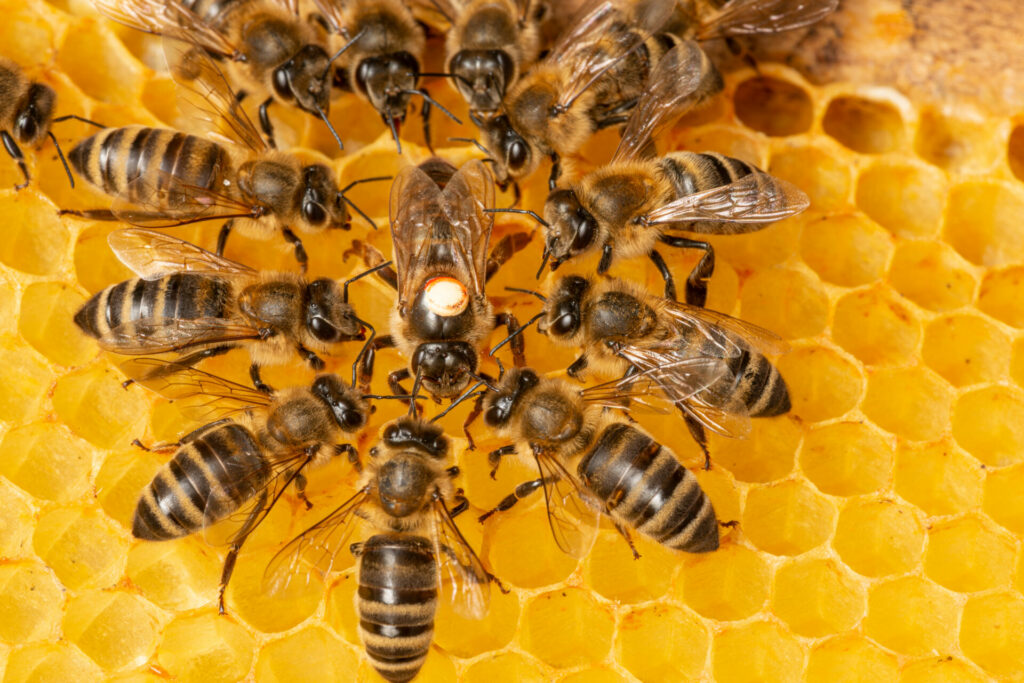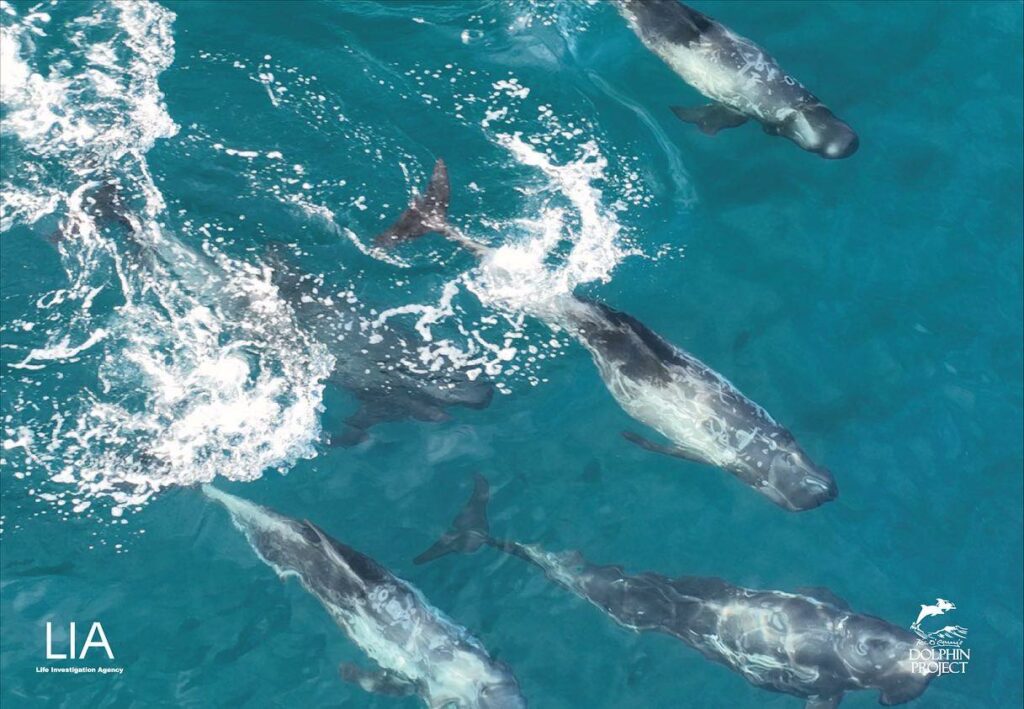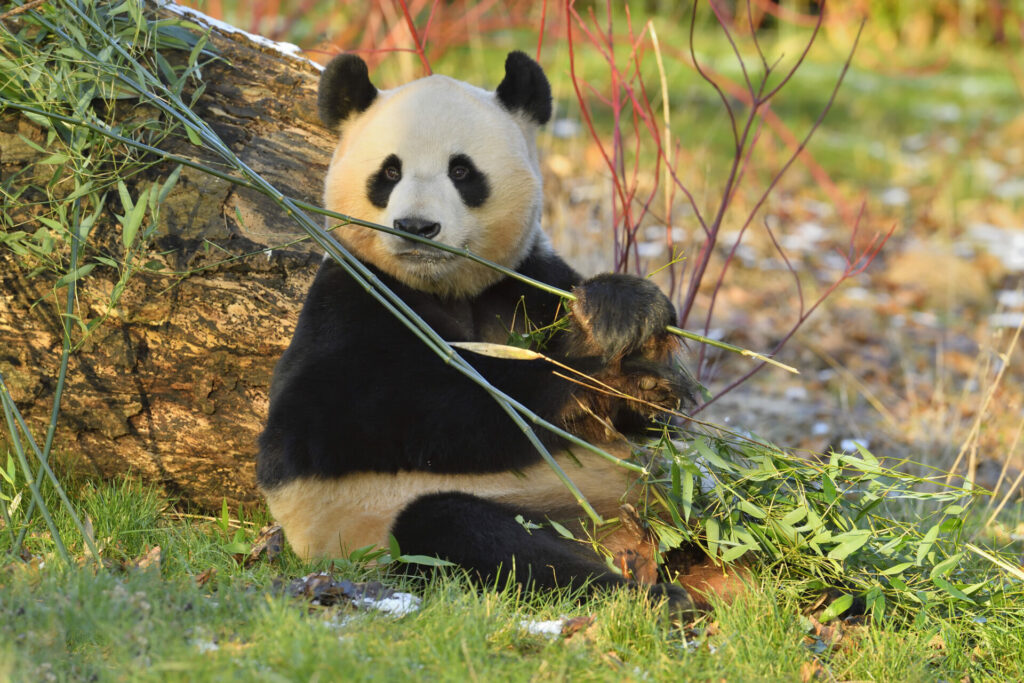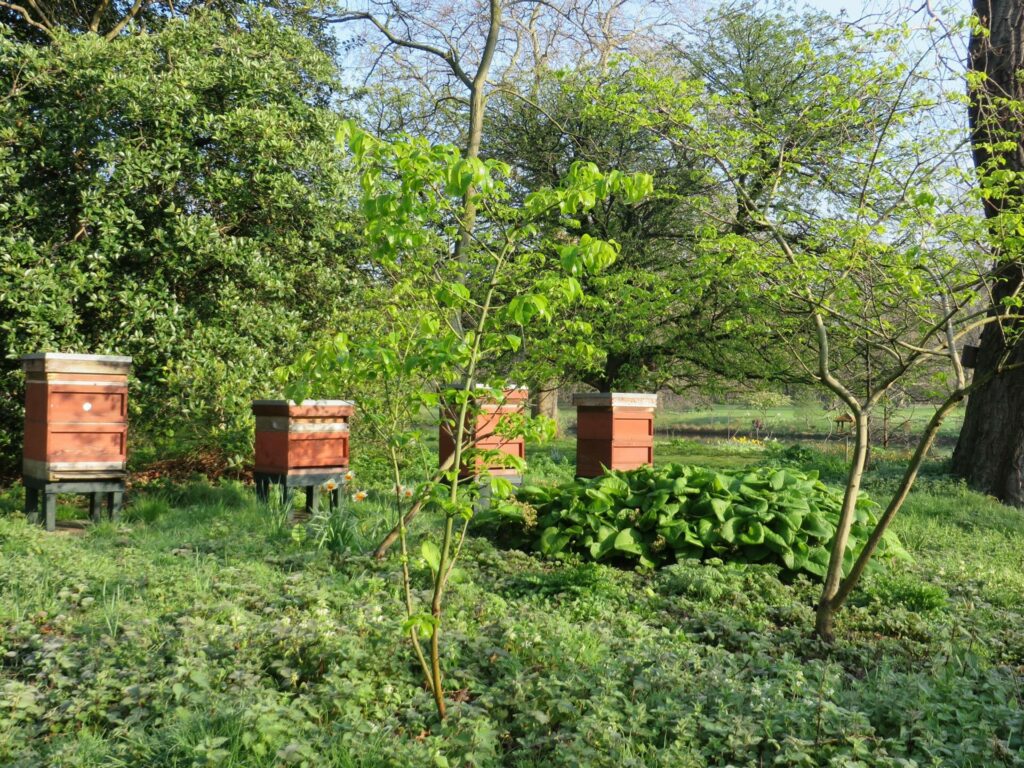A bee vaccine protecting honeybees against a disease which ravages hives has been developed in the US.
It will be made available to commercial beekeepers after the national Department of Agriculture (USDA) granted a conditional license for the treatment created by Dalan Animal Health, a biotech company.
‘Our vaccine is a breakthrough in protecting honeybees,’ said Annette Kleiser, company CEO. ‘We are ready to change how we care for insects, impacting food production on a global scale.’
The bee vaccine is designed to combat foulbrood, a serious disease caused by the bacterium Paenibacillus larvae that can kill off entire colonies.
There is currently no cure for the condition, which in parts of the US has been found in a quarter of hives, and has also been widely identified in Europe, and with less frequency, reported in the Middle East, south America, and Asia.
Currently, beekeepers have to burn any infected colonies and equipment and administer antibiotics to nearby colonies in order to prevent further spread.
‘This is an exciting step forward for beekeepers, as we rely on antibiotic treatment that has limited effectiveness and requires lots of time and energy to apply to our hives,’ Tauzer Apiaries, a board member of the California State Beekeepers Association, said in a news release from Dalan. ‘If we can prevent an infection in our hives, we can avoid costly treatments and focus our energy on other important elements of keeping our bees healthy.’
Administering a Bee Vaccine
The bee vaccine works by incorporating inactive bacteria into the royal jelly fed by worker bees to the queen, which then ingests it and gains some of the vaccine in her ovaries. The developing bee larvae then have immunity to foulbrood as they hatch.
‘In a perfect scenario, the queens could be fed a cocktail within a queen candy – the soft, pasty sugar that queen bees eat while in transit,’ said Keith Delaplane, an entomologist at the University of Georgia, which has partnered with Dalan on the project.
‘Queen breeders could advertise ‘fully vaccinated queens.’

It is called ‘Foulbrood’ because it affects the brood (the term for bee larvae and pupae) and causes the hive to have a particular foul odour.
‘It’s something that beekeepers can easily recognise because it reduces the larvae to this brown goo that has a rancid stink to it,’ said Delaplane
The vaccine comes at a critical time for honeybees.
Pollinators such as bees, birds and bats are responsible for about a third of the world’s crop production with over 100 crops grown in the United States dependent on pollination but bee numbers worldwide are declining.
The US has seen annual reductions in honey bee colonies since 2006, according to the USDA with a study finding that bee populations in North America have nearly halved.
This decline means the country is unusually dependent upon managed honeybee colonies, with hives moved by truck across the country to propagate crops from strawberries to squash.
Habitat loss, pesticide use and the climate crisis are all considered partly to blame for the decline which is prompting widespread concern about security of the food chain for humans.













